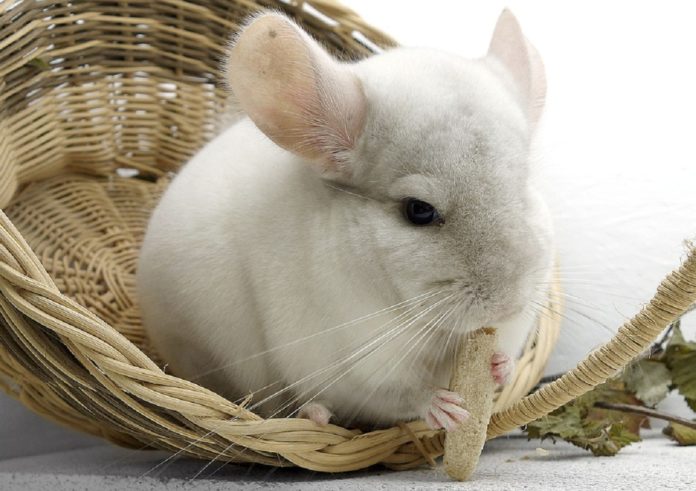A chinchilla is a rodent that is closely identified with a porcupine or a guinea pig. Generally, they are considered odourless, clean and amiable pets but they are shy and get scared easily. chinchilla have extremely beautiful and soft fur, the coats of the chinchillas vary from white, bluish-grey, silver, black to beige. The average life span of these animals is from 8 to 10 years; however, there have been reports of some of them living till 18 years. Being small and dainty beings, they need proper care.
Here are some details which would help you to take care of your chinchillas well:
Chinchillas Diet
Hay, pellets, fruits, nuts and vegetables can be included in the staple diet of the rodents. If you cannot find pellets for the chinchillas, then the standard ones meant for the guinea pigs or rabbits can also be used. These animals tend to eat with their hands. As a result, they also waste a considerable amount of their foods. Hay is fodder that can be fed to them alongside the pellets. This food is useful for both nutritional and psychological reasons. These provide additional fibre required in the diet. Store the hay in a cool, dry place, so that it does not get damp. Chins refuse to eat damp hay. Fruits, nuts and vegetables should be considered as treat foods. These should not constitute more than 10% of the daily food intake. Feed clean water to your chins. Dirty water can lead to breeding of bacteria.
Handling Chinchillas
It is not very difficult to handle them. They are peace-loving animals who like to be dealt with utmost care. They rarely bite but may urinate when annoyed! However, if you do not handle them properly, it may lead to aggressive behaviour. Socialize your pet to keep them healthy and happy. There is another problem with chinchillas. They have the tendency to jump out of hands and if this occurs, it might be difficult to recover them again.
Living space
Cages are the best living options for a chinchilla. Avoid putting them in glass aquariums as they have poor ventilation. Wood cages are also not recommended as the rodents are known for their habit of gnawing. You need a cage that has ample space for these active animals. In addition, make arrangements for nest boxes to ensure their well being. They like to use the boxes for hiding. Besides the cage, check out the temperature. They thrive from 60 to 70 degree Fahrenheit. They cannot stand humidity or excess heat. Chinchillas like to stay alone. If you house them together, the chances are they will not get along well. The females are more aggressive. Hence, it is advisable that you keep them separate.
Health Issues
Health is of prime concern for the chins. When you have chinchillas as pets it is important that you take good care of their health. From their teeth to respiration, it is essential that you take your pets for regular check-ups. Find a vet who is a specialist in this field. Keeping a first aid kit ready can also help. Generally, they are afflicted by humidity, wounds and dental problems. Hence, make sure they are eating right and regularly.
High humidity also affects them and they can suffer heatstroke. This usually occurs when their cage is kept under direct sunlight. Ventilation is another important issue. Keep their fur clean and dry. These animals have a dainty skeletal structure. To ensure that their injuries are taken care of immediately. A broken bone is a common problem as well.
Chinchillas are exotic animals and demand proper care for a healthy living. So look after them well.


















